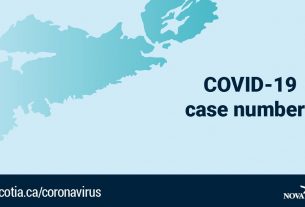**** RCMP Media Release
COVID scams can look convincing, RCMP warns
Canadians should use extra caution to avoid becoming the victim of a COVID scam.
Jeff Thomson, a senior RCMP intelligence analyst with the Canadian Anti-Fraud Centre (CAFC), says phishing scams have been very common. He says Canadians have received thousands of emails and texts that look like they are from the Government of Canada asking for personal information.
But federal departments and agencies do not solicit personal information via emails or texts.
Thomson says if Canadians feel they’re on the verge of being victimized to “take a step back
” and reach out to a trusted person or an official source for advice.
“If you have any doubts about something, slow down, don’t react, don’t engage,
” says Thomson, who estimates that $7 million have been lost to COVID-related scams in Canada.
Throughout the pandemic, employees at the CAFC have been tracking COVID-related fraud across the country. More than 9,700 Canadians reported falling victim to a scam between March 6, 2020 and Jan. 31, 2021.
Thomson says the best way for people to protect themselves is to not respond to unsolicited emails, texts or phone calls with urgent or coercive demands. He adds that offers or deals that sound too good to be true are usually fake.
Some examples include bogus COVID testing kits and deceptive ads selling in-demand items such as hand sanitizers and face masks. There are even fake COVID vaccination emails that trick people into opening attachments or clicking links that expose their device to theft of data or personal information.
Some fraudulent emails that appear to be from the Government of Canada prompt recipients to complete forms and provide personal and sensitive information, like their bank and health card numbers.
Thomson also warns of stock scams that entice people into investing in firms that claim to make products such as personal protective equipment, but don’t actually exist.
With more Canadians at home and online, Thomson says fraudsters have been presented with a unique opportunity to exploit people’s insecurities.
“People are feeling alone, they’ve lost their social network and many have lost their jobs so they’re vulnerable,
” he says. “But they need to reach out, stay connected so they can talk to others about what’s happening in their lives.
”
Thomson’s one piece of advice: Don’t feel pressured into providing personal information or money.
But if someone suspects they’ve become a victim, Thomson says they shouldn’t feel embarrassed to report fraud to the police or the CAFC.
“These frauds, unfortunately, aren’t going away and we encourage people to talk about their experiences to help spread fraud awareness,
” he says. “We also encourage reporting to get information that helps us understand the current fraud landscape and help track the fraudsters.
“




